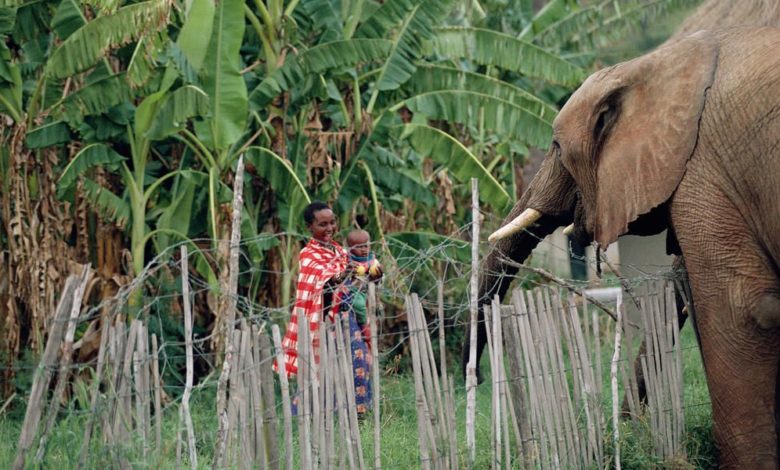Forestry And Mining Activities Main Cause Of Man-Animal Conflict In Gabon

Forestry and mining activities are the main source of conflict between human beings and animals in Gabon, investigations show.
The findings negate the general belief that the creation of national parks caused the conflict.
According to an investigation carried out by Afrobarometre and made public on July 30, more than half of Gabonese have never heard of the conflict between humans and animals.
Meanwhile, those who have any knowledge of such conflict only associate it to the destruction of farms by elephants.
Afrobarometre is a panafrican research outfit which produces viable data on the experiences and appreciations of Africans in relation to the quality of life, governance and democracy.
The recent report was realized through the Centre for the Study and Research in Political Geosciences (CERGEP).
The research was carried out in February just before the arrival of the coronavirus in Gabon and it follows earlier ones in 2015 and 2017.
It revealed that 55 per cent of Gabonese have never heard of conflict between human beings and animals. And those who have heard of the said conflict are predominantly city dwellers.
Of the 45 per cent of Gabonese who have any knowledge of the said conflict, more than nine on ten, which is about 94 per cent, associate the destruction of farms by elephants as the sole conflict.
The report indicates that 57 per cent of those who have any knowledge of the conflict between human beings and animals associate it to attacks by animals on the population, whereas 47 per cent consider the conflict as associated with excessive hunting of animals by humans.
When questioned about the factors that determine the said human/animal conflict, 80 per cent of Gabonese surveyed associated it with the destabilization of the forests by economic activities notably of forestry and mining origin.
To this segment of the community, forestry and mining activities are the principal factors that aggravate the conflict between humans and animals.
Within this bracket of Gabonese, 49 per cent of them estimate that it is villagers, through their activities in forest protected areas that perturb animal species.
About 36 per cent blame the conflict on the presence of national parks while 35 per cent blame it on the presence of certain species of animals, especially the carnivorous ones.
It should be recalled that in 2002, the late President Omar Bongo Ondimba, father of the current president, decided on the creation of 13 national parks on 11 per cent of the national land surface.
The management of the parks led to the creation of the National Agency for National Parks, which has as mission, amongst others, the preservation of the fauna and flora, not only within the national parks but also within the peripheries of the parks.
However, within the past years, the National Agency for National Parks has been accused of being in favour of the “protection of animals to the detriment of the human population”.
The Afrobarometre investigation was thus carried out to throw more light on the national debate on the management of the conflict between human beings and animals by pointing out the perception of citizens on the management and protection of wildlife.
Support Our Journalism
There are millions of ordinary people affected by conflict in Africa whose stories are missing in the mainstream media. HumAngle is determined to tell those challenging and under-reported stories, hoping that the people impacted by these conflicts will find the safety and security they deserve.
To ensure that we continue to provide public service coverage, we have a small favour to ask you. We want you to be part of our journalistic endeavour by contributing a token to us.
Your donation will further promote a robust, free, and independent media.
Donate HereStay Closer To The Stories That Matter




